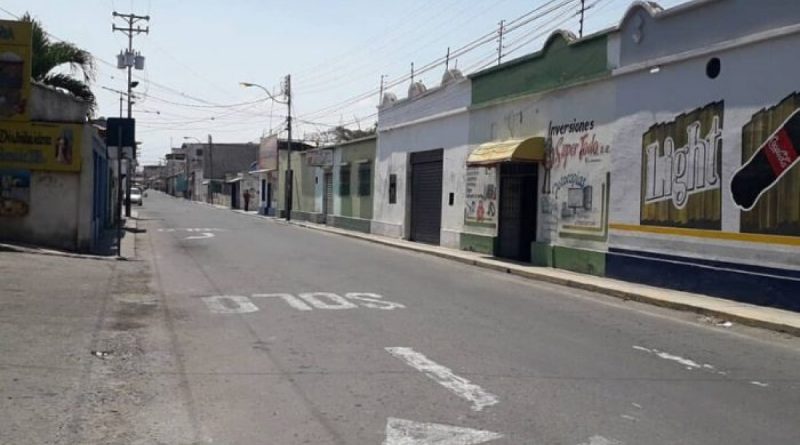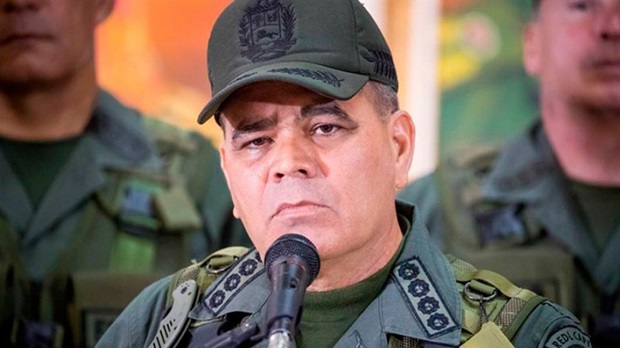Oly Millán | Despite starting this year with shame and outrage at the unfortunate spectacle that is taking place in the National Assembly [1] I want to be optimistic because I refuse to believe that my country does not have a future and that all paths to achieve political change in peace are closed. Therefore, I consider that 2020 will undoubtedly be a year of parliamentary elections in Venezuela, which can become the lifesaver to conjure the crisis and destruction of the country by having a parliament that reflects the plurality and diversity of the Venezuelan society. In 2020 we have the possibility of connecting the electoral event with the big issues and challenges we have as a nation, such as the reinstitutionalization of the country; the conversion of the electoral event into a plebiscite for Nicolás Maduro and the elite that accompanies him; the necessary debate on the change of the productive model that starts from a change in the energy matrix; the need for a public audit of the debt; the true punishment to those who have done away with the national wealth; the defense of human rights (justice and vindication to the victims of human rights violations). As I said, I refuse to think of this year is as another lost year that leads us to a further escalation of the terrible crisis that we suffer as a nation. Therefore, this year of legislative elections, if we are intelligent, we can change the chaotic trend in which we are immersed and turn this tragedy into an opportunity for change without losing sight of both national and international contexts that surround us, characterized by:
In the scope of the World Capitalist System: The present decade is witnessing a rapid process of change in the international economic relations that has been expressing a new correlation of forces in the world geopolitics The outbreak of the structural crisis of the capitalist system at the end of 2008 was an element that put in perspective the hegemony of the American capital and the weight it has in its areas of direct influence, as is Latin America. New blocks have counterbalanced that influence, and new bilateral relations schemes are opening new paths. A close example is the diplomatic and commercial relations between China and Russia.
Latin American plays a role within the disputes over the control of territories and raw materials by empires (consolidated or emerging) who seek to control the world economy, and we cannot lose sight of the importance of Venezuela in these dynamics.
In the specific case of Latin America: After the death of President Chavez and the expected fall of the so-called “progressive governments”, the correlation of forces in the region changed and the hegemony of political power by traditional and emerging economic groups imposed itself. These groups are closely connected to the North American and European imperialisms, although they maintain certain flirting with China [2]. In this picture, it is obvious that the US[3] seeks to reassert its control into what traditionally was its “backyard”, after losing a part of it with the entry of Chinese and Russian capital favored by the regional power block that was consolidating around the so-called “Progressive governments” that had built an anti-imperialist, anti-American discourse, and had raised the flags of Socialism.
Despite the confusing and limited role played by progressive governments, Latin American people continue to resist, as evidenced by the important mobilizations that have taken place throughout the continent: in Argentina, against the neoliberal and IMF-backed policies of the Macri administration that resulted in the triumph of the Fernández-Fernández formula; the protests and mobilizations in Nicaragua, Ecuador, Colombia, Puerto Rico; and the recent social outbreak in Chile, coupled with the events that forced the resignation of President Evo Morales in Bolivia.
At the national level: As expected, after significant street mobilizations in early 2019 and after garnering support from major world governments to the amorphous “transitional government”, deputy Juan Guaidó’s mantra of cessation of usurpation, a transitional government, and free elections ended up becoming a resounding disappointment. At the end of the year 2019, we have a government with a relative triumph over the opposition, who continues to move from failure to failure without any kind of humility to recognize its mistakes in the face of a country more burdened and destroyed. There is little credibility in state institutions, parties, and politicians. The economic system has been boosted by a de facto dollarization and by an economic policy of laissez-faire (let do, let pass), maximum expression of economic liberalism that deepens social inequalities. Anyways, in a country in ruins, few options remain for Venezuelans, unless motivation and massive participation in the parliamentary election resume all at once, making possible the reinstitutionalization of the country. A Parliament of men and women truly committed to Venezuela and its sovereignty within the current constitution can make a real counterweight to an unconstitutional and delegitimized government with a deep authoritarian drift, whose only true merit is to have made Venezuela one of the poorest countries in the Americas.
[1] Now we have two AN directives claiming the “legal and legitimate” right to preside over the AN for this year.
[2] China is an important commercial partner of many countries in Latin America (Mexico, Chile, Argentina, Colombia, Brazil)
[3] https://www.diariolasamericas.com/america-latina/macri-eeuu-no-deberiadejar-
China-ser-socio-principal-america-latina-n4136472




